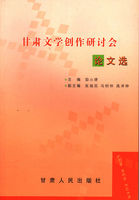"At the first temptation- for instance, to entertain the woman with whom he had already squandered half the money- he would have unpicked his little bag and have taken out some hundred roubles, for why should he have taken back precisely half the money, that is, fifteen hundred roubles? Why not fourteen hundred? He could just as well have said then that he was not a thief, because he brought back fourteen hundred roubles.Then another time he would have unpicked it again and taken out another hundred, and then a third, and then a fourth, and before the end of the month he would have taken the last note but one, feeling that if he took back only a hundred it would answer the purpose, for a thief would have stolen it all.And then he would have looked at this last note, and have said to himself, 'It's really not worth while to give back one hundred; let's spend that, too!' That's how the real Dmitri Karamazov, as we know him, would have behaved.One cannot imagine anything more incongruous with the actual fact than this legend of the little bag.Nothing could be more inconceivable.But we shall return to that later."After touching upon what had come out in the proceedings concerning the financial relations of father and son, and arguing again and again that it was utterly impossible, from the facts known, to determine which was in the wrong, Ippolit Kirillovitch passed to the evidence of the medical experts in reference to Mitya's fixed idea about the three thousand owing him.
Chapter 7
An Historical Survey"THE medical experts have striven to convince us that the prisoner is out of his mind and, in fact, a maniac.I maintain that he is in his right mind, and that if he had not been, he would have behaved more cleverly.As for his being a maniac, that I would agree with, but only in one point, that is, his fixed idea about the three thousand.
Yet I think one might find a much simpler cause than his tendency to insanity.For my part I agree thoroughly with the young doctor who maintained that the prisoner's mental faculties have always been normal, and that he has only been irritable and exasperated.The object of the prisoner's continual and violent anger was not the sum itself; there was a special motive at the bottom of it.That motive is jealousy!"Here Ippolit Kirillovitch described at length the prisoner's fatal passion for Grushenka.He began from the moment when the prisoner went to the "young person's" lodgings "to beat her"- "I use his own expression," the prosecutor explained- "but instead of beating her, he remained there, at her feet.That was the beginning of the passion.At the same time the prisoner's father was captivated by the same young person- a strange and fatal coincidence, for they both lost their hearts to her simultaneously, though both had known her before.And she inspired in both of them the most violent, characteristically Karamazov passion.We have her own confession: 'I was laughing at both of them.' Yes, the sudden desire to make a jest of them came over her, and she conquered both of them at once.The old man, who worshipped money, at once set aside three thousand roubles as a reward for one visit from her, but soon after that, he would have been happy to lay his property and his name at her feet, if only she would become his lawful wife.We have good evidence of this.As for the prisoner, the tragedy of his fate is evident; it is before us.But such was the young person's 'game.' The enchantress gave the unhappy young man no hope until the last moment, when he knelt before her, stretching out hands that were already stained with the blood of his father and rival.It was in that position that he was arrested.'Send me to Siberia with him, I have brought him to this, I am most to blame,' the woman herself cried, in genuine remorse at the moment of his arrest.
"The talented young man, to whom I have referred already, Mr.
Rakitin, characterised this heroine in brief and impressive terms:
'She was disillusioned early in life, deceived and ruined by a betrothed, who seduced and abandoned her.She was left in poverty, cursed by her respectable family and taken under the protection of a wealthy old man, whom she still, however, considers as her benefactor.
There was perhaps much that was good in her young heart, but it was embittered too early.She became prudent and saved money.She grew sarcastic and resentful against society.' After this sketch of her character it may well be understood that she might laugh at both of them simply from mischief, from malice.
"After a month of hopeless love and moral degradation, during which he betrayed his betrothed and appropriated money entrusted to his honour, the prisoner was driven almost to frenzy, almost to madness by continual jealousy- and of whom? His father! And the worst of it was that the crazy old man was alluring and enticing the object of his affection by means of that very three thousand roubles, which the son looked upon as his own property, part of his inheritance from his mother, of which his father was cheating him.
Yes, I admit it was hard to bear! It might well drive a man to madness.It was not the money, but the fact that this money was used with such revolting cynicism to ruin his happiness!"Then the prosecutor went on to describe how the idea of murdering his father had entered the prisoner's head, and illustrated his theory with facts.















